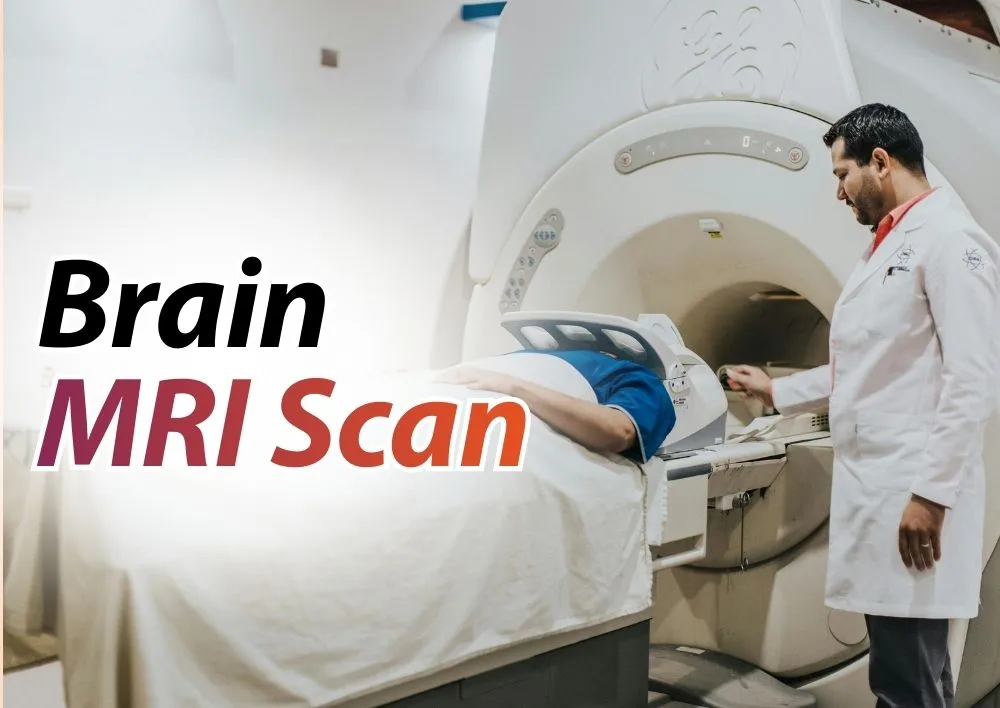Polycystic Ovary Syndrome PCOS - Causes Symptoms Diagnosis and Treatment
Polycystic Ovary Syndrome (PCOS) is a common but complex hormonal disorder worldwide. It is estimated to impact up to 10% of women of reproductive age. PCOS is characterized by a range of symptoms, including irregular menstrual periods, excessive hair growth, acne, and infertility. In this blog post, we will delve into PCOS, exploring its symptoms, causes, the diagnostic process, and the various treatment options available.
What is Polycystic Ovary Syndrome(PCOS)?
Polycystic Ovary Syndrome(PCOS) is a hormonal disorder that primarily affects millions of females around the world. It occurs when the ovaries start producing unusually high levels of androgens. Androgens are male hormones that females also produce naturally but in very little amount. These help in growth and reproduction. PCOS causes the female reproductive hormones to become imbalanced and females with this disorder experience symptoms such as irregular or missed menstrual periods, unpredictable ovulation, excessive hair growth, etc. Polycystic ovary syndrome can also lead to long-term health problems, such as type 2 diabetes, heart disease, and stroke.
PCOS Symptoms
-
Irregular Menstrual Cycles: One of the most common symptoms of PCOS is irregular periods. Females with PCOS usually experience longer, or irregular cycles. In some cases, they go months without menstruating.
-
Excess Production of Androgens: Increased levels of androgens (male hormones like testosterone) can cause symptoms such as acne, facial hair growth, and male pattern baldness.
-
Polycystic Ovaries: Ovarian cysts are small fluid-filled sacs that are not found in every female suffering from polycystic ovary syndrome. However, they are commonly found and can be seen on transvaginal ultrasound.
-
Weight Gain: Females with PCOS gain weight and find it difficult to lose.
-
Insulin Resistance: Some females with PCOS have insulin resistance and an increased risk of type 2 diabetes.
-
Skin Problems: Skin issues such as acne, skin tags, and dark patches on the skin are common in women with PCOS.
-
Infertility: PCOD is one of the most common causes of infertility because it disturbs the ovulation process.
-
Thinning Hair: Females with PCOS usually experience the loss of patches of hair. In some cases, their hair starts to bald.
PCOS Causes
PCOS may be caused by a combination of genetic and environmental factors:
-
Genetic Factors: PCOS tends to run in families, suggesting a genetic component to the disorder. Women with a family history of PCOS are at a higher risk of developing it.
-
Environmental Factors: Various environmental factors are associated with PCOS, including obesity, insulin resistance, inflammation, and androgen excess. Not all individuals with PCOS possess all of these risk factors, and genetic predisposition may interact with environmental factors to trigger the disorder.
It is important to note that not every female with PCOS has all of these risk factors. Some women may be more genetically inclined to PCOS than others, and some environmental factors may also trigger the development of the disorder in females who are genetically at risk of developing PCOS.
PCOS Diagnosis
To diagnose PCOS, your doctor will ask you about your symptoms and medical history. Doctors usually recommend tests if you have the following three symptoms Irregular menstrual periods, Excess hair growth or acne, or Cysts on the ovaries.
The doctor may conduct a physical exam and order blood tests and imaging tests.
1. Blood tests
-
Hormone Levels: Testing for hormones such as testosterone, luteinizing hormone (LH), follicle-stimulating hormone (FSH), and prolactin.
-
Blood Sugar Levels: To rule out type 2 diabetes.
-
Cholesterol Levels: Assessing cholesterol levels to evaluate the risk of heart disease.
2. Imaging Tests
-
Ultrasound: Transvaginal ultrasound can be used to visualize the ovaries and detect cysts.
PCOS Treatment
There are various treatments available to manage the symptoms of PCOS and reduce the risk of long-term health issues. The doctor will decide the best treatment for you depending on your symptoms and goals.
1. Lifestyle Modification
Lifestyle Modifications may be very effective in managing PCOS symptoms and reducing the risk. These changes may include:
-
Losing weight: Even a small amount of weight loss can improve insulin sensitivity and reduce PCOS symptoms.
-
Eating a healthy diet: Eating a healthy diet can help you lose weight and improve your overall health. PCOS treatment diet must include plenty of fruits, vegetables, and whole grains to achieve your goal of being healthy.
-
Exercising regularly: Exercising for at least 30 minutes regularly can help you lose weight, improve insulin sensitivity, and reduce PCOS symptoms.
2. Medication
In some cases, lifestyle changes are not enough to manage your PCOS symptoms. The doctor may prescribe some medication to treat PCOS including:
-
Hormonal birth control: Hormonal birth control can help to regulate menstrual periods, and reduce acne, and excess hair growth.
-
Metformin: Metformin is a medication that is typically used to treat type 2 diabetes. It can also be used to improve insulin sensitivity and ovulation in women with PCOS.
-
Clomiphene: Clomiphene is a medication that can help induce ovulation in women with PCOS who are trying to get pregnant.
-
Other medications: Other medications that may be used to treat PCOS symptoms include spironolactone, which can reduce excess hair growth, and isotretinoin, which can treat severe acne.
3. Surgery
Surgery may be considered for females with PCOS who are trying to get pregnant but are not responding to any medical treatment. The doctor may recommend minimally invasive Laparoscopic ovarian drilling (LOD) to help improve ovulation.
Tips for Managing PCOS
Apart from the mentioned treatments, here are some additional strategies for managing PCOS and improving overall health:
-
Ensure adequate sleep, aiming for 7-8 hours per night.
-
Manage stress through healthy practices like exercise, yoga, or meditation, as stress can exacerbate PCOS symptoms.
Conclusion
Polycystic Ovary Syndrome (PCOS) is a complex condition that not only affects self-confidence but various aspects of a female's health, from fertility to metabolism. Understanding its symptoms, causes, diagnosis, and treatment options is important for every female, suffering from PCOS. The treatment of PCOS is highly individualized depending on the symptoms and condition of the patient, So, it is important to consult the best gynecologist near you to develop a personalized treatment plan that addresses your unique needs. By doing so, you can take control of your health and lead a fulfilling life even with PCOS.
Miracles Apollo Cradle is the best gynecologist hospital in Gurgaon with a strong track record of success in treating Polycystic Ovary Syndrome (PCOS). We have a team of highly experienced and skilled gynaecologists in Gurgaon who specialize in PCOS treatment. They involve the use of the latest diagnostic and treatment methods to help patients manage their symptoms and improve their overall health.
We offer a comprehensive approach to PCOS treatment, addressing all aspects of the disorder, including hormonal imbalances, weight gain, infertility, and other associated health problems.
Our doctors focus on providing patients with the information and support they need to make informed decisions about their treatment.
If you are looking for the best female gynae in Gurgaon for PCOS treatment, Miracles Apollo Cradle is a great option to consider. Here we can help you manage your PCOS symptoms and improve your overall health.
Frequently Asked Questions
Common symptoms of PCOS in females include irregular periods, excessive facial or body hair, acne, weight gain, and difficulty conceiving.
Symptoms of PCOS can be managed easily with lifestyle modifications like weight management, a healthy diet, regular exercise, and medication as prescribed by a doctor.
Yes, women with PCOS can get pregnant naturally or with fertility treatments under medical guidance
PCOS can increase the risk of pregnancy complications like gestational diabetes or high blood pressure, so close monitoring is essential.
A well-balanced diet rich in fiber, lean proteins, whole grains, and low in refined sugars helps manage the symptoms of PCOS effectively.
Miracles Apollo Cradle, Gurgaon, features a team of top female gynaecologists specializing in PCOS treatment, providing advanced care and personalized support.



.webp)











Was the information useful?
0 0